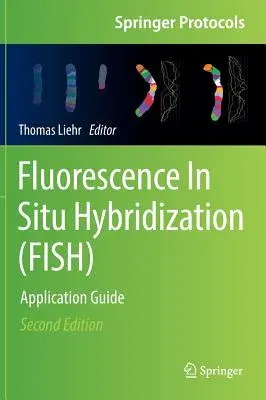Fluorescence in Situ Hybridization (Fish): Application Guide (2017)Hardcover - 2017, 27 October 2016

Qty
1
Turbo
Ships in 2 - 3 days
In Stock
Free Delivery
Cash on Delivery
15 Days
Free Returns
Secure Checkout

Part of Series
Springer Protocols Handbooks
Print Length
606 pages
Language
English
Publisher
Springer
Date Published
27 Oct 2016
ISBN-10
3662529572
ISBN-13
9783662529577
Description
Product Details
Book Edition:
2017
Book Format:
Hardcover
Country of Origin:
NL
Date Published:
27 October 2016
Dimensions:
25.4 x
17.78 x
3.33 cm
ISBN-10:
3662529572
ISBN-13:
9783662529577
Language:
English
Location:
Berlin, Heidelberg
Pages:
606
Publisher:
Series:
Weight:
1283.67 gm